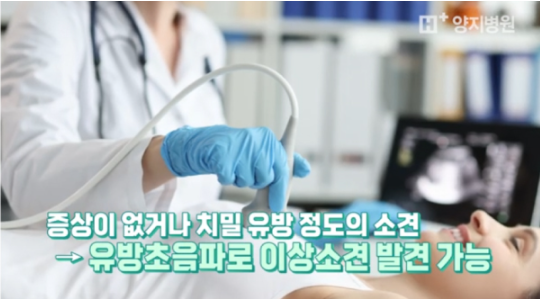Breast Cancer Screening: What You Need to Know
How is Breast Cancer Screening Performed?
Screening tests are used to detect cancer in individuals who do not yet have symptoms. Early screening and self-examination, starting at a young age, are essential for the early detection of breast cancer.
Steps in Breast Cancer Screening
1. Self-Examination
Regular self-examinations are recommended each month.
- For Premenopausal Women: The best time for a self-exam is 4–5 days after the end of menstruation.
- For Postmenopausal Women: Choose a consistent day each month to perform a self-check.
2. Mammography
Mammography is considered the standard screening tool for breast cancer.
- This X-ray procedure involves compressing the breast to capture images. It is highly effective at reducing breast cancer mortality by allowing early detection.
- In South Korea, as part of the national cancer screening program, mammography is recommended every two years for women aged 40–69.
3. Breast Ultrasound
Breast ultrasound is not typically used as a primary screening tool.
- It is often used when abnormalities are found on a mammogram or if a lump is detected.
- However, it can also be useful in identifying abnormalities, particularly in women with dense breast tissue or those experiencing symptoms like breast pain.
- While ultrasounds can detect lumps, breast cancer can also present as microcalcifications, which are more accurately identified with mammography.
Note: Mammography and ultrasound are complementary tests, each providing different insights into breast health.
4. Breast MRI
For women with a high risk of breast cancer, such as those with BRCA gene mutations, annual MRI screenings are recommended due to their high sensitivity.
- MRI is also helpful for individuals with breast implants, as it can better assess tissue around the implants.
m
Tips for Breast Cancer Prevention
- Participate in Regular Screenings: Taking advantage of the national breast cancer screening every two years ensures early detection.
- Healthy Lifestyle: Maintaining a balanced diet and active lifestyle, and avoiding obesity, significantly reduces the risk of breast cancer.
Early screening and proactive health habits are the most effective ways to stay ahead in breast cancer prevention.
 +84 24-7306-9889
+84 24-7306-9889  Booking
Booking 






